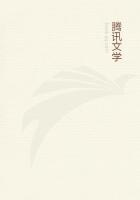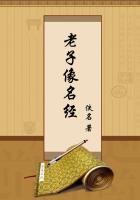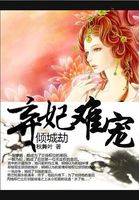But are we never to have an explanation of this phrase? Force is a physical power, and I fail to see what moral effect it can have.To yield to force is an act of necessity, not of will ?at the most, an act of prudence.
In what sense can it be a duty?
Suppose for a moment that this so-called "right" exists.I maintain that the sole result is a mass of inexplicable nonsense.For, if force creates right, the effect changes with the cause: every force that is greater than the first succeeds to its right.As soon as it is possible to disobey with impunity, disobedience is legitimate; and, the strongest being always in the right, the only thing that matters is to act so as to become the strongest.But what kind of right is that which perishes when force fails?
If we must obey perforce, there is no need to obey because we ought; and if we are not forced to obey, we are under no obligation to do so.Clearly, the word "right" adds nothing to force: in this connection, it means absolutely nothing.
Obey the powers that be.If this means yield to force, it is a good precept, but superfluous: I can answer for its never being violated.All power comes from God, I admit; but so does all sickness: does that mean that we are forbidden to call in the doctor? A brigand surprises me at the edge of a wood: must I not merely surrender my purse on compulsion;but, even if I could withhold it, am I in conscience bound to give it up?
For certainly the pistol he holds is also a power.
Let us then admit that force does not create right, and that we are obliged to obey only legitimate powers.In that case, my original question recurs.4.SLAVERY S INCE no man has a natural authority over his fellow, and force creates no right, we must conclude that conventions form the basis of all legitimate authority among men.
If an individual, says Grotius, can alienate his liberty and make himself the slave of a master, why could not a whole people do the same and make itself subject to a king? There are in this passage plenty of ambiguous words which would need explaining; but let us confine ourselves to the word alienate.To alienate is to give or to sell.Now, a man who becomes the slave of another does not give himself; he sells himself, at the least for his subsistence: but for what does a people sell itself?
A king is so far from furnishing his subjects with their subsistence that he gets his own only from them; and, according to Rabelais, kings do not live on nothing.Do subjects then give their persons on condition that the king takes their goods also? I fail to see what they have left to preserve.
It will be said that the despot assures his subjects civil tranquillity.
Granted; but what do they gain, if the wars his ambition brings down upon them, his insatiable avidity, and the vexations conduct of his ministers press harder on them than their own dissensions would have done? What do they gain, if the very tranquillity they enjoy is one of their miseries?
Tranquillity is found also in dungeons; but is that enough to make them desirable places to live in? The Greeks imprisoned in the cave of the Cyclops lived there very tranquilly, while they were awaiting their turn to be devoured.
To say that a man gives himself gratuitously, is to say what is absurd and inconceivable; such an act is null and illegitimate, from the mere fact that he who does it is out of his mind.To say the same of a whole people is to suppose a people of madmen; and madness creates no right.
Even if each man could alienate himself, he could not alienate his children:
they are born men and free; their liberty belongs to them, and no one but they has the right to dispose of it.Before they come to years of discretion, the father can, in their name, lay down conditions for their preservation and well-being, but he cannot give them irrevocably and without conditions:
such a gift is contrary to the ends of nature, and exceeds the rights of paternity.It would therefore be necessary, in order to legitimise an arbitrary government, that in every generation the people should be in a position to accept or reject it; but, were this so, the government would be no longer arbitrary.
To renounce liberty is to renounce being a man, to surrender the rights of humanity and even its duties.For him who renounces everything no indemnity is possible.Such a renunciation is incompatible with man's nature; to remove all liberty from his will is to remove all morality from his acts.
Finally, it is an empty and contradictory convention that sets up, on the one side, absolute authority, and, on the other, unlimited obedience.Is it not clear that we can be under no obligation to a person from whom we have the right to exact everything? Does not this condition alone, in the absence of equivalence or exchange, in itself involve the nullity of the act? For what right can my slave have against me, when all that he has belongs to me, and, his right being mine, this right of mine against myself is a phrase devoid of meaning?
Grotius and the rest find in war another origin for the so-called right of slavery.The victor having, as they hold, the right of killing the vanquished, the latter can buy back his life at the price of his liberty; and this convention is the more legitimate because it is to the advantage of both parties.
But it is clear that this supposed right to kill the conquered is by no means deducible from the state of war.Men, from the mere fact that, while they are living in their primitive independence, they have no mutual relations stable enough to constitute either the state of peace or the state of war, cannot be naturally enemies.War is constituted by a relation between things, and not between persons; and, as the state of war cannot arise out of simple personal relations, but only out of real relations, private war, or war of man with man, can exist neither in the state of nature, where there is no constant property, nor in the social state, where everything is under the authority of the laws.

